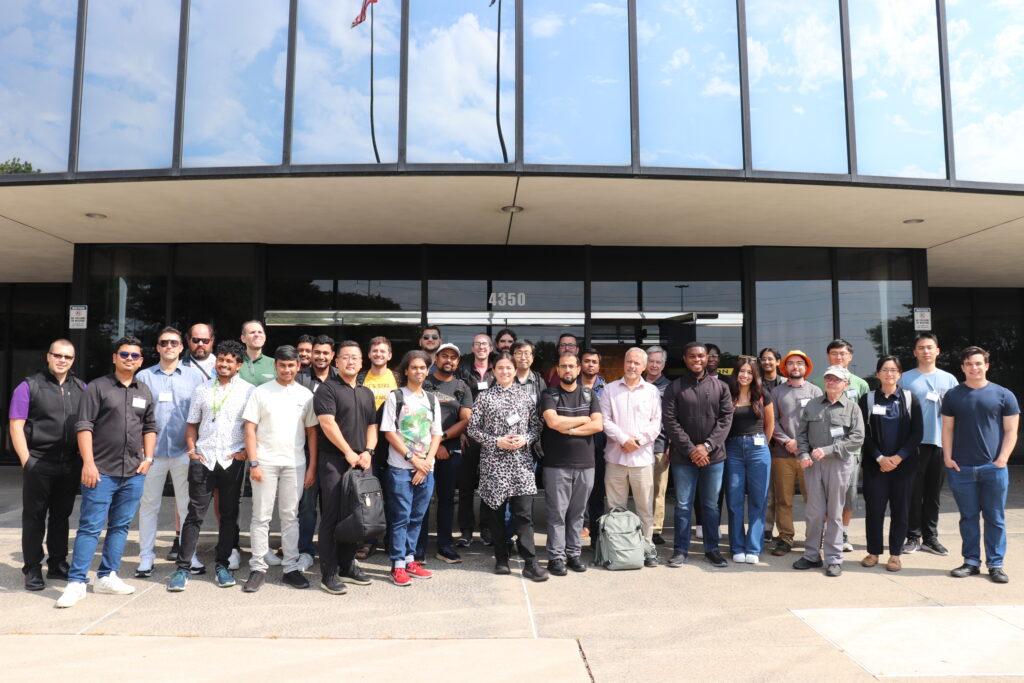
$1 Million to PSC and Collaborating Institutions for Development on Next Generation Cyberinfrastructure Training Program
A $1-million award from the National Science Foundation will allow the development of ByteBoost 2.0, a next-generation, centralized training program for existing and upcoming federally-funded cyberinfrastructure (CI) testbed systems. The award will be shared by the Pittsburgh Supercomputing Center at Carnegie Mellon University, Stony Brook University, and Texas A&M University.
“ByteBoost 2.0 will enable researchers to explore current and emerging CI technologies and to critically evaluate their suitability for advancing their work,” said Paola Buitrago, Director of PSC’s Artificial Intelligence & Big Data Group and ByteBoost 2.0’s principal investigator. “By providing insights into the advantages, disadvantages, and key considerations of each technology, this initiative empowers researchers and instructors to select and use the most appropriate solutions for their specific goals.”
The earlier ByteBoost Cybertraining Pilot Program, also funded by NSF, was created to promote the adoption of cutting-edge computing platforms into existing and novel AI and high-performance computing (HPC) workflows. After two years of successful testing of the original ByteBoost, the ByteBoost 2.0 grant will fund the project in its full form. As with ByteBoost 2.0, the program drew on the capabilities of three NSF-funded testbed systems: ACES at Texas A&M, Neocortex at PSC within CMU, and Ookami at Stony Brook. ByteBoost strove to increase utilization and productivity of these technologies across established and emerging HPC-enabled disciplines.
“The ByteBoost workshop exposed me to three HPC testbeds: ACES, Neocortex, and Ookami,” said Darshan Sarojini, an assistant professor at Virginia Tech. “Through the program, I learned the capabilities of the testbeds and their strengths and limitations. The information learned in the workshop will help shape my future research endeavors and identify the optimal testbed for advancing research in aircraft design.”
“Crucially, and entirely unique to ByteBoost in my experience, this hardware access opportunity had almost zero barrier to entry,” added Matthew Andres Moreno. a postdoctoral fellow at the University of Michigan. “After filling out a signup form with some basic information, I received allocations on all three installations within minutes.”
ByteBoost 2.0 will:
- Enable researchers and educators to understand and adopt cutting-edge computing technologies available in local, regional, and national technology testbeds.
- Enable participants to build critical skills for evaluating and deploying applications across varied computing technologies and architectures.
- Enhance computational education through the development of modular, portable curriculum materials and the training of educators.
- Scale a successful pilot into a national, interdisciplinary training program.
- Strengthen the research workforce with hands-on, research-aligned specialized training in innovative computing technologies.
ByteBoost 2.0 will also leverage existing and future NSF-funded advanced cyberinfrastructure resources, covering a broad set of CI testbeds and architectures through modular instruction via a single learning management system. A centralized training platform, ByteBoost will combine an annual virtual webinar series and an in-person “Bring Your Own Science” workshop. It also includes a dedicated educator track for curricular development. Students and educators are encouraged to join the 2026 iteration of the program. Learn more here.
